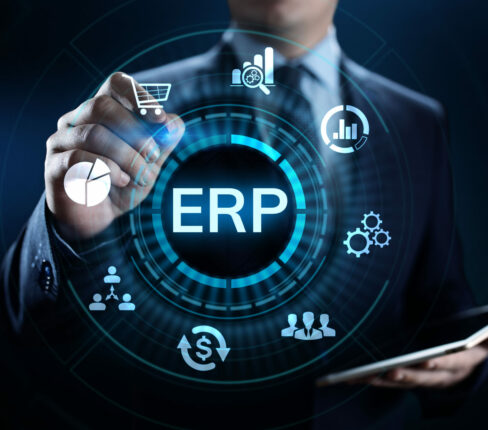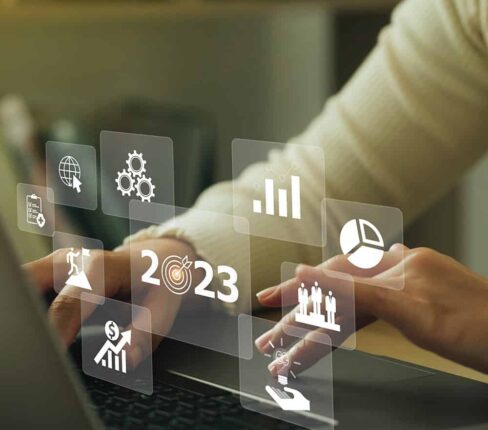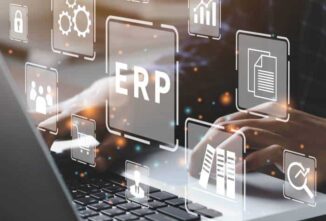CRM vs ERP
CRM (Customer Relationship Management) and ERP (Enterprise Resource Planning) systems offer businesses the tools to streamline and enhance their operations. These comprehensive software solutions are designed to unify data from various departments and automate tasks that require manual work. Despite sharing some benefits and features, CRM and ERP have distinct functions.
Both CRM and ERP systems can handle contacts, quotes, orders, and forecasts, and both can manage line-item configuration, bundles, delivery schedules, and invoices, but what is the difference, and where does CRM end and ERP begin?
Understanding the distinction between Customer Relationship Management (CRM) and Enterprise Resource Planning (ERP) systems is essential to manage your business processes efficiently. Although both platforms aim to streamline business operations, their core functions and impact on the growth trajectory differ significantly.
CRM systems focus on managing company interactions with current and potential customers to improve sales growth and customer service excellence, while ERP software centralizes the data across various departments, fostering seamless data flow and operational efficiency across the entire organization.
The distinct roles of CRM and ERP systems within an organization empower businesses to harness their unique benefits — enhancing customer relationships on one side and optimizing operations and resources on the other.
Understanding the difference between CRM and ERP can help businesses decide which solution to implement to meet their strategic goals.
What Is ERP Software, And How Does It Work?
An ERP software is a comprehensive platform that integrates various business processes into a unified system. While CRM systems mainly focus on helping businesses manage the customer-related side of the business, ERP incorporates the entire operation, often including customer interactions. It’s designed to streamline business activities, automate repetitive tasks, and reduce manual work, improving efficiency and accuracy across the organization.
ERP software is a tool that enhances the functionality of all departments. Its main goal is to improve organizational efficiency by managing and optimizing the utilization of company resources. The software centralizes both real-time and historical data, providing a comprehensive view of business operations in real time and facilitating quick decision-making and information sharing. Any changes made in one business area are automatically reflected throughout the system, ensuring consistency and prompt response to operational discrepancies.
For example, if a sales order is placed, the ERP system updates inventory levels, notifies the purchasing department to reorder supplies if necessary, and adjusts the financial records—all automatically. This interconnected approach ensures that there’s a smooth flow of information and that different departments are closely aligned with each other.
What Is A CRM System and How Does It Work?
A CRM system is a platform that supports businesses in streamlining their interactions with customers and managing related information. It acts as a centralized database for all customer engagement and sales activity, ensuring customer-facing teams have the information they need to provide effective service and support.
It enhances business functions by offering detailed sales projections based on historical data and engagement metrics, which are paramount for developing informed sales strategies. The system also plays a pivotal role in nurturing prospects by automating communications throughout the sales funnel, thereby improving lead conversion rates.
Additionally, CRM systems streamline administrative tasks by organizing invoices and tracking communications, allowing sales teams to focus on building customer relationships and pursuing new leads. For customer service teams, immediate access to customer histories via the CRM enables personalized support and quicker issue resolution, leading to increased customer satisfaction.
Moreover, the system’s ability to analyze customer data helps businesses tailor their marketing and communication strategies for more effective interactions. Overall, integrating CRM system functionality into a business operation can significantly improve efficiency, boost sales, and enhance the quality of customer service, all while enabling personalized customer experiences and informed, data-driven decision-making.
Can ERP replace CRM?
Although some ERP solutions include CRM-like features, they generally lack the advanced functionalities for customer data analysis and interaction management offered by dedicated CRM systems. Therefore, an ERP cannot replace a CRM if the goal is to maintain a high level of customer engagement and personalized service. For businesses looking to optimize both internal efficiencies and customer relationships, utilizing both systems in harmony is often the most effective strategy.
What type of business needs both CRM and ERP?
Businesses that operate with a complex structure manage a large volume of data, and aim to optimize both their internal operations and customer relationships typically require both CRM and ERP systems. This includes organizations with extensive supply chains, those that handle a significant amount of transactions, or enterprises offering a wide range of products or services.
Additionally, companies in competitive markets that prioritize customer service as a differentiator need the advanced customer management capabilities of a CRM alongside the operational efficiencies provided by an ERP. Industries such as manufacturing, retail, technology, and services, where coordination between various departments and a clear understanding of customer needs are crucial for success, will find value in integrating an ERP and a CRM system into their operations.
Do I Need A CRM System, An ERP Software, Or Both?
While a CRM system drives sales and customer relations, an ERP system helps streamline operations and reduce overall costs. Combined, a CRM and an ERP can maximize business growth.
Today, you can easily find cost-effective cloud-based SaaS solutions that allow fast, automated, and secure ERP and CRM integration.
Your best bet is to move forward with fully integrating your ERP and CRM solutions and gain the full benefits of your ERP and CRM investments.







